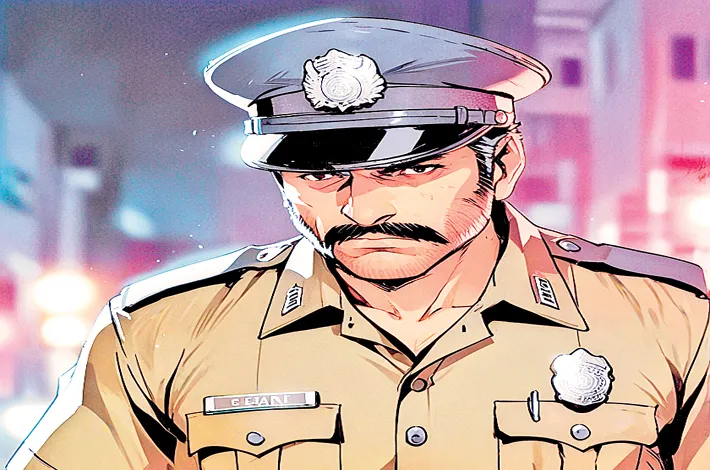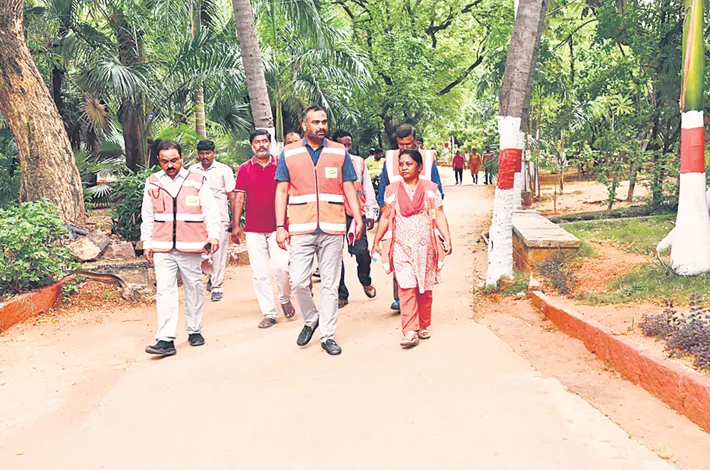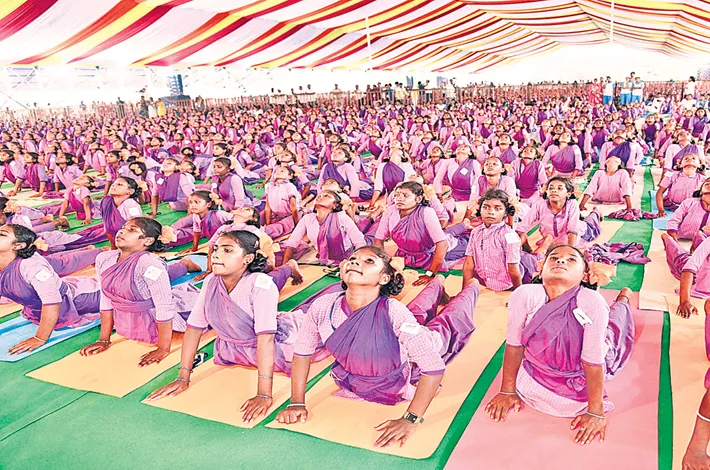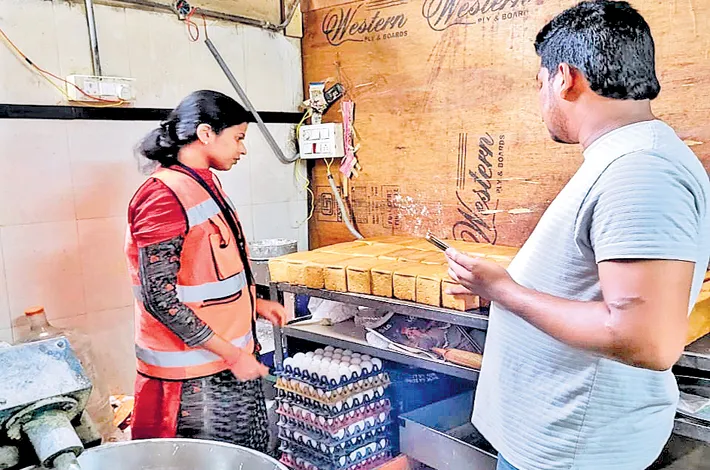The Patiala Heist
19-06-2025 12:00:00 AM

Meanwhile, a tip came from an informant in Patiala’s underworld. A fixer named Monty, known for fencing stolen goods, had been bragging about a big score. Baldev’s team tracked Monty to a dhaba on the Patiala-Zirakpur highway. Under interrogation, Monty cracked, admitting he’d been approached by a man called “Vikram” to move gold bars
The morning mist clung to the streets of Patiala, Punjab, like a conspirator hiding secrets. It was 7:45 AM on June 18, 2025, when Inspector Baldev Singh, a grizzled veteran of the Punjab Police, received the call. The State Bank of Patiala’s main branch on Mall Road had been hit. A daring daylight robbery, executed with surgical precision, had left the bank’s vault empty and its staff in shock. Baldev adjusted his turban, grabbed his service revolver, and sped toward the scene, the siren of his jeep cutting through the city’s early bustle.
The bank was a fortress of colonial-era architecture, its red sandstone facade now cordoned off by nervous constables. Inside, chaos reigned. Tellers and customers huddled in corners, their faces pale, while forensic teams dusted for prints. The branch manager, Mr. Sharma, a wiry man with sweat-soaked spectacles, recounted the events to Baldev. At 7:15 AM, three masked men had stormed in, armed with silenced pistols and a chilling calm. They’d disabled the cameras, herded everyone into the break room, and emptied the vault of 50 crores in cash and gold in under ten minutes. No shots fired, no alarms tripped. They vanished before the first patrol car arrived.
Baldev’s eyes narrowed as he surveyed the scene. The robbers had left no obvious clues—no shell casings, no fingerprints, not even a stray hair. The vault’s biometric lock, supposedly impenetrable, had been bypassed with ease. “Professionals,” Baldev muttered, lighting a cigarette despite the no-smoking sign. He questioned Sharma further. The manager swore the biometric system was flawless, accessible only to him and two senior staff. Yet, the vault had been opened without force. “Someone on the inside,” Baldev concluded, his gut screaming betrayal.
His first lead came from a junior teller, Amrita Kaur, a sharp-eyed woman in her twenties. Nervously twisting her dupatta, she mentioned a customer who’d lingered near the vault entrance the previous day, asking odd questions about security protocols. She described him: medium build, clean-shaven, wearing a cheap polyester kurta but expensive sunglasses—a mismatch that piqued Baldev’s interest. Amrita hadn’t caught his name, but she’d seen him leave in a white Maruti Swift with a partially obscured license plate.
Baldev dispatched constables to check nearby CCTV footage while he interviewed the bank’s security team. The head guard, Gurpreet, was a burly ex-soldier with a limp from an old injury. He claimed the robbers had used military-style tactics, moving in sync like a trained unit. One had spoken in clipped Punjabi, but with an accent Gurpreet couldn’t place—possibly from outside the state. Baldev noted the detail. Most local crews were sloppy, driven by desperation. These men were disciplined, calculated. This wasn’t their first job.
By noon, a breakthrough came. CCTV from a nearby petrol pump caught the white Maruti Swift speeding away at 7:25 AM. The plate was partially visible: PB-11. Baldev cross-referenced it with the RTO database, narrowing it down to a car registered to a Ravinder Singh, a small-time mechanic in Patiala’s industrial area. Baldev and his team raided Ravinder’s garage, a cluttered shack reeking of oil and metal.
Ravinder, a lanky man with grease-stained hands, denied involvement, claiming his car had been stolen two days earlier. He hadn’t reported it, citing distrust in the police. Baldev didn’t buy it. Ravinder’s shifty eyes and sweating brow screamed guilt, but a search of the garage turned up nothing—no cash, no gold, no weapons.
Back at the station, Baldev pored over the evidence. The robbers’ efficiency gnawed at him. Disabling cameras, bypassing biometrics, and vanishing without a trace required insider knowledge and serious tech. He called in a cybercrime expert, Navdeep, who analyzed the bank’s security logs. Navdeep discovered a sophisticated hack: someone had remotely overridden the vault’s biometric system using a cloned admin credential. The hack traced to an IP address in Chandigarh, 60 kilometers away. Baldev’s instincts flared—this was no local job.
He drove to Chandigarh that evening, the city’s neon lights a stark contrast to Patiala’s sleepy charm. The IP address led to a rundown cybercafe in Sector 17. The owner, a jittery teenager, admitted renting a terminal to a man matching Amrita’s description: kurta, sunglasses, medium build. The man had paid cash and used a VPN to mask his activity. Baldev confiscated the terminal’s hard drive, hoping forensics could salvage something.
Meanwhile, a tip came from an informant in Patiala’s underworld. A fixer named Monty, known for fencing stolen goods, had been bragging about a big score. Baldev’s team tracked Monty to a dhaba on the Patiala-Zirakpur highway. Under interrogation, Monty cracked, admitting he’d been approached by a man called “Vikram” to move gold bars. Vikram had promised a cut but hadn’t delivered yet. Monty described him: same build, same sunglasses. Baldev’s pulse quickened. The pieces were aligning.
Using Monty’s phone, Baldev set a trap, luring Vikram to a meet at an abandoned warehouse in Patiala’s outskirts. At midnight, under a moonless sky, Baldev and his team lay in wait. Three men arrived in a black SUV, armed and cautious. A tense standoff ensued. Baldev, hidden in the shadows, recognized the leader’s voice—clipped Punjabi, outsider accent. “Vikram,” he whispered to his sergeant.
The raid was swift. Gunfire erupted, but Baldev’s team had the advantage. Two robbers were subdued, but Vikram bolted, leaping into the SUV. Baldev gave chase through Patiala’s narrow lanes, tires screeching, his jeep barely keeping up. The pursuit ended when Vikram’s SUV crashed into a tractor on a rural road. Baldev dragged him from the wreckage, bloodied but alive. Under interrogation, Vikram revealed the mastermind: the bank’s deputy manager, Anil Verma, who’d provided the biometric credentials for a cut of the loot.
By dawn, Anil was in custody, and the stolen gold was recovered from a godown in Ludhiana. The cash, however, remained missing—Vikram swore it was stashed in a Delhi safehouse, but Baldev suspected he was holding out. As the sun rose over Patiala, Baldev lit another cigarette, staring at the city’s skyline. The case wasn’t closed yet. Delhi awaited, and with it, the next chapter of the hunt. In Patiala, the mist had lifted, but the shadows of greed lingered.








